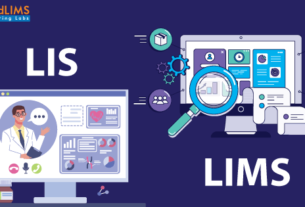The rapid adoption of cloud computing has transformed the way individuals and organizations store, process, and access data. Cloud technology offers unparalleled convenience, scalability, and cost-effectiveness, making it an attractive choice for various use cases, from personal file storage to business-critical applications. However, this migration to the cloud has also introduced new security challenges, with data breaches and cyber threats becoming more prevalent. As a result, individuals and businesses alike need a robust cloud security platform to protect their sensitive data and ensure a safe digital environment. In this blog, we will explore the compelling reasons why people need a cloud security platform and how it can safeguard data in the digital age.
Data Breach Protection
Data breaches have become a persistent concern, impacting individuals and organizations across the globe. Cybercriminals are constantly evolving their tactics to gain unauthorized access to sensitive information stored in the cloud. A cloud security platform employs various techniques, such as data encryption, secure authentication, and access controls, to protect data from unauthorized access and prevent data breaches. By using a cloud security platform, individuals and businesses can minimize the risk of their valuable data falling into the wrong hands.
Security testing services play a crucial role in ensuring the effectiveness of a cloud security platform. These services encompass a range of methodologies and techniques aimed at identifying vulnerabilities and weaknesses within the security infrastructure. Regular security audits are essential for evaluating the overall security posture of the cloud platform. Auditors assess compliance with security policies, regulations, and best practices to ensure that the system meets industry standards for data protection and confidentiality.
In-depth code review involves examining the source code of applications and software components deployed in the cloud environment. This helps identify potential security flaws and coding errors that could be exploited by attackers. Code review is an essential part of secure software development lifecycle (SDLC) practices. Security testing services include assessing compliance with standards such as GDPR, HIPAA, PCI DSS, ISO 27001, and others, depending on the nature of the data and industry sector.
Identity and Access Management (IAM)
Proper management of user identities and access controls is crucial in cloud environments. Weak or misconfigured IAM practices can lead to unauthorized access and data exposure. A cloud security platform ensures robust IAM, incorporating multi-factor authentication (MFA), role-based access control (RBAC), and user activity monitoring. With these features in place, individuals can control who can access their cloud data and mitigate the risk of account compromise.
Continuous Cloud Monitoring
Cloud security platforms offer continuous monitoring of cloud resources, applications, and data. They scan for security vulnerabilities, misconfigurations, and suspicious activities in real-time. This proactive approach enables individuals and businesses to detect potential security threats early on, allowing them to take prompt action and prevent security incidents.
Compliance with Regulations
Adherence to data protection and privacy regulations is essential for individuals and businesses operating in the cloud. A cloud security platform ensures compliance with relevant industry standards and government regulations, such as GDPR, HIPAA, and PCI DSS. By meeting these compliance requirements, individuals can avoid legal penalties and maintain the trust of their customers or partners.
Protection Against Advanced Threats
Cyber threats are becoming more sophisticated, with advanced malware and zero-day exploits targeting cloud environments. A cloud security platform employs artificial intelligence and machine learning algorithms to analyze data patterns, identify anomalies, and detect unknown threats. By leveraging cutting-edge technologies, a cloud security platform can effectively defend against emerging cyber threats.
Secure Collaboration and File Sharing
In today’s interconnected world, seamless collaboration and file sharing are essential for both personal and business purposes. A cloud security platform ensures secure collaboration by providing encrypted communication channels and secure file sharing capabilities. This allows individuals and teams to work together efficiently without compromising data security.
Data Encryption and Privacy
Data encryption is a critical component of cloud security. A cloud security platform encrypts data both at rest and in transit, ensuring that sensitive information remains confidential and protected from unauthorized access. For individuals who store personal data or businesses handling customer information, encryption is a vital layer of defense.
Disaster Recovery and Business Continuity
In the event of a cyber attack, data loss, or system failure, a cloud security platform with robust disaster recovery features can help individuals and businesses recover their data and resume normal operations swiftly. Cloud security platforms provide backup and recovery solutions to ensure business continuity and minimize downtime.
Customizable Security Policies
Every individual or organization has unique security requirements. A cloud security platform allows users to customize security policies based on their specific needs. This flexibility enables users to tailor their security measures to address their most critical risks effectively.
The customizable security policies should integrate seamlessly with existing IT infrastructure and security tools. This integration ensures that policies can be enforced consistently across all relevant systems and applications. A robust cloud security platform should offer features for continuous monitoring of security policies and their effectiveness. Users should receive alerts and reports on policy violations or suspicious activities, allowing them to adjust their policies as needed to adapt to evolving threats or changing business requirements.
Peace of Mind and Trust
Ultimately, the primary reason why people need a cloud security platform is peace of mind. Knowing that their data is protected by a comprehensive and proactive security solution gives individuals and businesses the confidence to leverage cloud technology to its fullest potential.
Conclusion
The proliferation of cloud computing has revolutionized how individuals and organizations manage and utilize data. However, this digital transformation also brings a new set of security challenges that require immediate attention. A cloud security platform is a necessity in the digital age, as it safeguards data from data breaches, cyber threats, and unauthorized access. With features such as data breach protection, robust identity and access management, continuous monitoring, compliance adherence, and disaster recovery capabilities, a cloud security platform empowers individuals and businesses to securely embrace the cloud’s benefits while maintaining the confidentiality, integrity, and availability of their valuable data. By investing in a reliable cloud security platform, users can enjoy peace of mind and trust that their digital assets are safe and protected in an increasingly interconnected world.
In any case, before we conclude the article – there’s something else we want to talk about. When it comes to safeguarding your data, the first thing you must do is remove the additional information as much as possible. And that’s where the data erasure services come in. They can help you find and get rid of the wrong sort of data without any complication, which might improve your security even more, albeit indirectly.

James Oliver is a professional blogger and a seasoned Content writer for technologyspell.com. With a passion for simplifying technology and digital topics, he provides valuable insights to a diverse online audience. With four years of experience, James has polished his skills as a professional blogger.



